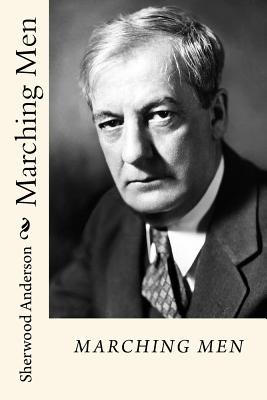
- We will send in 10–14 business days.
- Author: Sherwood Anderson
- Publisher: CreateSpace Independent Publishing Platform
- ISBN-10: 1981198091
- ISBN-13: 9781981198092
- Format: 15.2 x 22.9 x 0.7 cm, minkšti viršeliai
- Language: English
- SAVE -10% with code: EXTRA
Reviews
Description
Marching Men is a 1917 novel by American author Sherwood Anderson. Published by John Lane, the novel is Anderson's second book; the first being the 1916 novel Windy McPherson's Son. Marching Men is the story of Norman "Beaut" McGregor, a young man discontented with the powerlessness and lack of personal ambition among the miners of his hometown. After moving to Chicago he discovers his purpose is to empower workers by having them march in unison. Major themes of the novel include the organization of laborers, eradication of disorder, and the role of the exceptional man in society. The latter theme led post-World War II critics to compare Anderson's militaristic approach to homosocial order and the fascists of the War's Axis powers.
- Author: Sherwood Anderson
- Publisher: CreateSpace Independent Publishing Platform
- ISBN-10: 1981198091
- ISBN-13: 9781981198092
- Format: 15.2 x 22.9 x 0.7 cm, minkšti viršeliai
- Language: English English
Marching Men is a 1917 novel by American author Sherwood Anderson. Published by John Lane, the novel is Anderson's second book; the first being the 1916 novel Windy McPherson's Son. Marching Men is the story of Norman "Beaut" McGregor, a young man discontented with the powerlessness and lack of personal ambition among the miners of his hometown. After moving to Chicago he discovers his purpose is to empower workers by having them march in unison. Major themes of the novel include the organization of laborers, eradication of disorder, and the role of the exceptional man in society. The latter theme led post-World War II critics to compare Anderson's militaristic approach to homosocial order and the fascists of the War's Axis powers.


Reviews